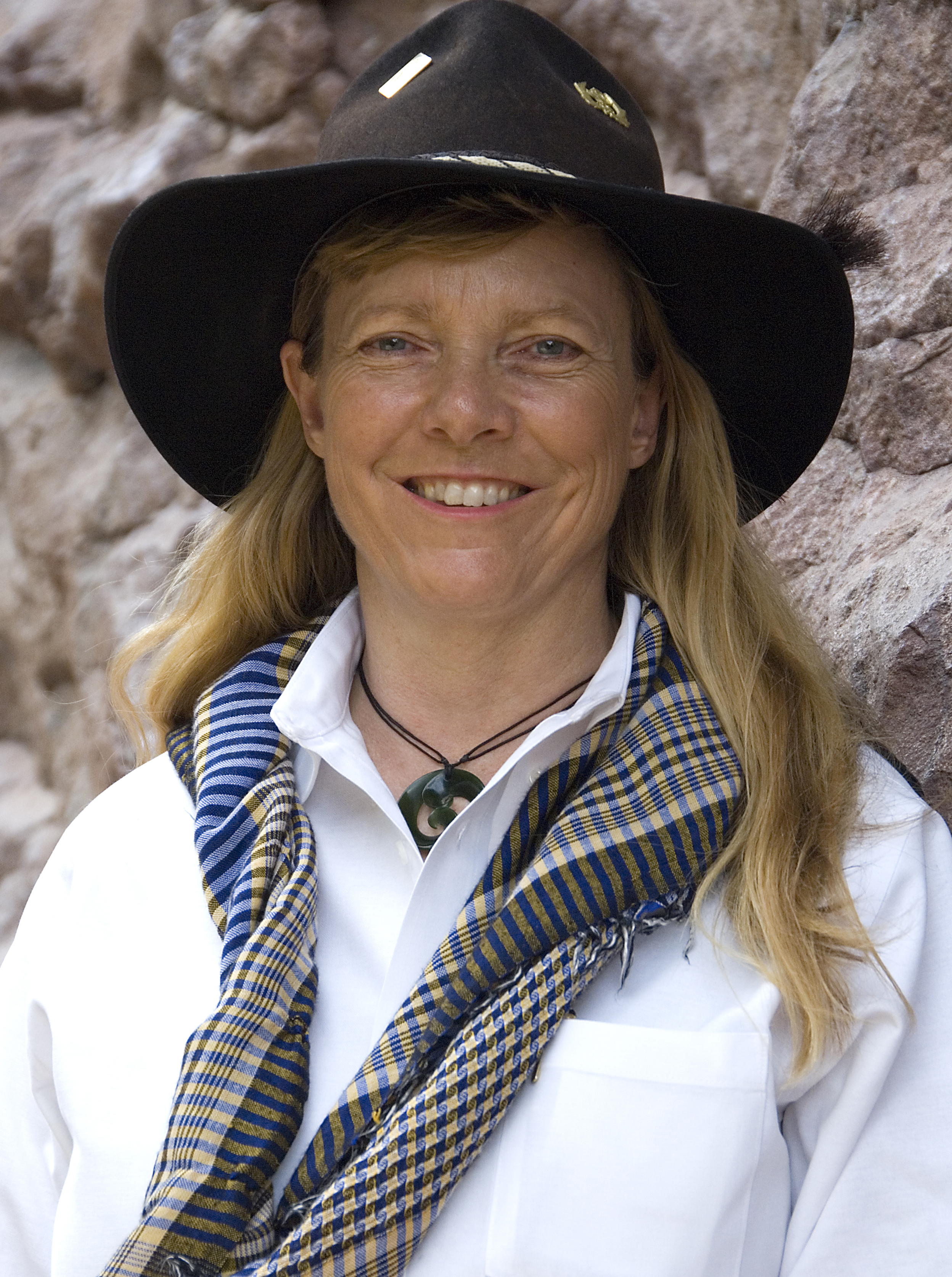![]()
Content maintained by Christensen Associates Energy Consulting, Madison Wisconsin
 Welcome – Shawn White, Manager, Product Policy & Strategy, Xcel Energy
Welcome – Shawn White, Manager, Product Policy & Strategy, Xcel Energy
Mr. White will start off the conference with a warm welcome from Xcel Energy, our host utility for 2019. He’ll quickly transition to remarks on the evolution of energy efficiency that he sees from the perspective of the investor-owned utility and its interactions with stakeholders and regulators. These parties are often grappling with the same ultimate goal of offering consumers a broader array of impactful energy solutions—managing bills, providing cleaner energy, and using technology to make tasks simpler—built on the solid foundation of decades of successful energy efficiency programs.
 Keynote Speaker – L. Hunter Lovins
Keynote Speaker – L. Hunter Lovins
L. Hunter Lovins is the President and Founder of Natural Capitalism Solutions (NCS), a non-profit formed in 2002 in Longmont, CO. A renowned author and champion of sustainable development for over 35 years, Hunter has consulted on business, economic development, sustainable agriculture, energy, water, security, and climate policies for scores of governments, communities, and companies worldwide. Within the United States, she has consulted for heads of state, departments of defense, energy agencies and hundreds of state and local agencies.
EMERGING METHODS IN TIME DEPENDENT VALUATION
Moderator: Carmen Best, Recurve
SHAPESHIFTING EVALUATIONS: INNOVATIVE IDEAS FOR NEW AND OLD PROBLEMS
Moderator: Lauren Gage, Apex Analytics
TOSS THE CRYSTAL BALL: BETTER UNDERSTANDING OF C&I LIGHTING MARKETS AND PROGRAMS THROUGH EVALUATION
Moderator: Sarah Castor, Energy Trust of Oregon
DON’T JUST SIT THERE – START MAKING YOUR DATA INSIGHTS ACTIONABLE!
Moderator: Melissa Culbertson, ADM Energy
PANEL: BRIDGING EVALUATION METRICS GLOBALLY
Moderators: Kevin Cooney, BUKA Engineering and Elizabeth Titus, NEEP
Panelists:
The IEPEC has spawned sister organizations in Europe and Asia Pacific that in turn are building their own evaluation communities, conferences, collective knowledge and separate but related identities. How can the energy evaluation community learn from the differences in perspectives and experience? What brings us together? The purpose of this panel is to collectively explore ideas for how to best bridge the evaluation world in light of the global energy transition. While the transition may be playing out differently across the globe, rigorous evaluations are needed. The environmental, financial, and technology ecosystems are global even though policies, programs, and investments are dispersed. Researchers and evaluators everywhere will benefit when data and information sharing can inform the metrics that matter in their local/regional communities. This panel will consider the role of consistent economic, environmental and societal metrics to meet regional stakeholders and to drive effective evaluation methods.
The panel will compare and contrast challenges facing evaluation communities, and solutions that are developing, including:
WE’RE ALL IN THIS TOGETHER…STRATEGIES AND TOOLS FOR CONDUCTING REAL-TIME AND EMBEDDED EVALUATION
Moderator: Lynn Roy, BrightLine Group
FARMERS, DOUGHNUTS, AND THE DEVIL’S LETTUCE: BIG INSIGHTS FROM NICHE MARKETS
Moderator: Matt Nelson, Massachusetts Department of Public Utilities
IMPACT OF BEHAVIOR ON ENERGY USE
Moderator: Jamilja Van der Meulen, TNO
BUILDING BETTER RESULTS: EVALUATOR INSIGHTS INTO NEW CONSTRUCTION AND CODES
Moderator: Matthew Joyce, Tierra Resource Consultants
PANEL: CHALLENGES ASSOCIATED WITH EVALUATING STRATEGIC ENERGY MANAGEMENT PROGRAMS
Moderator: Arlene Lanciani, CEE
Panelists:
Strategic Energy Management (SEM) is a holistic approach to managing large commercial and industrial energy use to continuously improve energy performance and achieve persistent energy and cost savings over the long term. With policy driving the need to achieve deeper savings, utilities are turning towards customer engagement through Strategic Energy Management (SEM) to fill the gap. SEM changes business practices, starting with senior management and emanating throughout organizational culture to reduce energy waste and reduce energy intensity. SEM emphasizes enabling and equipping plant management and staff to impact energy consumption through behavioral and operational change in addition to capital project implementation. If program administrators can only claim savings for capital improvements, then the benefits of SEM are undervalued and savings from behavioral and O&M improvements are lost. Every Program Administrator’s program is run differently and subject to different regulatory evaluation requirements. During this session, several experienced program administrators will provide examples of what their SEM programs look like in practice and why evaluating them can be so challenging.
VALUATING DISTRIBUTED RESOURCES: DIFFERENT STRIPES OR A WHOLE DIFFERENT ANIMAL?
Moderator: Jeremy Newberger, Navigant
THE STATE OF THE STATES: STATE-LEVEL EM&V PLANNING AND POLICY
Moderator: Ralph Prahl, Prahl and Associates
PAY FOR PERFORMANCE
Moderator: Jennifer Meissner, NYSERDA
EVALUATING MARKETS AND PROGRAMS TO BETTER SERVE THE CONSUMER
Moderator: William Saxonis, Rockefeller College of Public Affairs and Policy
HOT TOPIC: Michael Li, Connecticut Department of Energy and Environmental Protection
As large power plants retire, much of that capacity needs to be replaced. Over the last decade especially, the cost of distributed energy resources has come down, and utility experience in integrating a variety of resources has gone up. In light of this, many are asking whether utilities can replace large, centrally located generation with Virtual Power Plants – collections of distributed energy resources such as energy efficiency, demand response, rooftop solar, and batteries that provide the energy and capacity that power plants have traditionally provided. This session will explore whether clean Virtual Power Plants can provide the necessary services, and how the cost of these services compares to traditional thermal resources.
STORING ENERGY TO MOVE LOAD MOUNTAINS
Moderator: Nick Minderman, Xcel Energy
STATISTICAL VERSUS ENGINEERING BASELINES: NEW TECHNIQUES TO DESCRIBE WHAT COULD HAVE HAPPENED
Moderator: Jon Maxwell, ERS
ELECTRIC VEHICLES: EARLY INSIGHTS FROM GROWING MARKETS
Moderator: Jenna Canseco, DNV GL Energy
FISHING THE HEADWATERS: MARKET TRANSFORMATION UPSTREAM ISSUES
Moderator: Anu Teja, NEEA
PANEL: SURVIVAL – WHY COST-EFFECTIVENESS IS BECOMING THE BIGGEST CHALLENGE FACING ENERGY EFFICIENCY PROGRAMS
Moderator: Rob Kasman, Pacific Gas & Electric Company
Panelists:
This panel focuses on energy efficiency and DSM program cost effectiveness: how it’s measured, why those metrics are becoming increasingly challenging to meet, what can be done, and how evaluation can help. Panelists will address questions such as: Why is cost effectiveness suddenly becoming so challenging? If EE programs are no longer “cost effective,” should they be discontinued, or is this a sign that something else is wrong? What can program managers do to increase program cost effectiveness in the immediate term with existing cost effectiveness tests? Should benefit cost analysis (BCA) be re-formulated or inputs re-defined? Should non-energy benefits (such as climate change, job creation, health, and others) be included in program benefits? If so, how, given that valuing NEBS is challenging?
CHECKING IN ON THE NEW AND GROWING ROLE OF SOLAR AND STORAGE
Moderator: Jane Peters, Opinion Dynamics
THE TEMPORAL ELEMENT
Moderator: Anne Dougherty, ILLUME Advising
USING END USE DISAGGREGATION TO DESIGN RELEVANT DEMAND SIDE MANAGEMENT PROGRAMS FOR AN EVOLVING GRID
Moderator: Michael Goldman, Eversource Energy
DOWN TO THE WIRES: EVALUATING NON-WIRES ALTERNATIVES AS POTENTIAL SOLUTIONS TO T&D SYSTEM UPGRADES
Moderator: Michael Noreika, Puget Sound Energy
PANEL: MEASURING IMPACT TOWARD CLIMATE CHANGE MITIGATION: WHAT METRICS ARE NEEDED?
Moderator: Ari Michelson, ERS
Panelists:
The energy efficiency evaluation community is rapidly entering a time of substantial programmatic change, with the most significant shift being the growing policy focus on carbon-based regulatory and utility policy goals. States, provinces, and municipalities are increasingly adopting aggressive emissions-reduction targets. This shift is beginning to have significant impacts on the way we measure program progress, and evaluations must keep up with this trend. New evaluation approaches will be necessary with the incorporation of storage to facilitate expanded distributed renewable energy systems, the resulting impacts on demand curves, the fast-rising interest in electrification both for transportation and building systems, and other factors. Evaluation approaches and metrics must also innovate to effectively assess progress against carbon-reduction goals.
This panel will bring a diverse set of perspectives together for a compelling discussion exploring the policy shifts and the program metrics required to evaluate progress. The discussion will revolve around the following questions: What new metrics are needed to evaluate carbon reduction objectives? How can carbon metrics be implemented alongside traditional energy efficiency program evaluation? How should renewables integration and distributed energy resources (DERs) be valued? How should evaluation methods regarding fuel switching be evaluated?
GETTING REAL – RAPID FEEDBACK AND M&V
Moderator: Elizabeth Titus, NEEP
GIS AND EVALUATION: A PERFECT MATCH FOR EVERY PROGRAM
Moderator: Bob Wirtshafter, Wirtshafter Associates
THE NEXT FRONTIER: HOW CAN PROTOCOLS AND STANDARDIZATION HELP UNLOCK THE BENEFITS OF NMEC BASED VALUATION METHODS?
Moderator: Paula Gruendling, California Public Utilities Commission
WHAT THE GOOD DOCTOR TELLS US ABOUT NON-ENERGY IMPACTS
Moderator: Michael Li, Connecticut Department of Energy and Environmental Protection
PANEL: DO SMART HOME DEVICES BELONG IN THE UTILITY TOOLKIT OR THE CONSUMER TOYBOX?
Moderator: Jon Koliner, Apex Analytics
Panelists:
Buoyed by the success of smart thermostat programs nationwide, utilities have begun to make forays into the deployment of other smart home technologies. Concurrently, smart home assistants from Amazon and Google have matured, allowing the smart home interface to move from the smartphone to the spoken word. Both utility interest and customer-driven adoption are on the rise, but estimates of the energy-saving potential of these devices fluctuate; and we are still forming a clear picture of the Smart Home’s value to utilities, for energy efficiency, demand response, and more. In this panel, we will focus our attention on this rapidly-changing space. The array of new devices and features, including black-box algorithms and always-on modes that expend more energy, require careful consideration when estimating energy savings. The devices themselves are expensive, with initial costs of roughly ten times their “dumb” counterparts, but there are non-energy benefits from greater control, aesthetics, and security. The devices are often small measures that reduce their own usage through scheduling, and produce runtime data that can be analyzed inexpensively. In the context of utility and customer desire driving adoption of these products, we will aim to sketch out a viable utility program, from design to evaluation.
UNLOADING THE GRID – TECHNOLOGIES AND EVALUATION METHODS TO ADVANCE RELIABLE DEMAND RESPONSE
Moderator: Jennifer Chiodo, Cx Associates
SURVEY RESEARCH IN A CHANGING WORLD – MAINTAINING DATA QUALITY AND CONTRIBUTING INSIGHTS
Moderator: Ingo Bensch, Evergreen Economics
THE SECRET LIVES OF THERMOSTATS: QUICK TAKES ON THE LATEST SMART THERMOSTAT RESULTS
Moderator: Beth Delahaij, National Grid
BEYOND OPERATIONS, MAINTENANCE, BEHAVIOR, AND TUNING – STRATEGIC ENERGY MANAGEMENT DELIVERS ADMINISTRATOR OBJECTIVES
Moderator: Jeff Ihnen, Michaels Energy
PANEL: OPEN SOURCE SOFTWARE AND THE NEW ENERGY FRONTIER
Moderator: Michael Noreika, Puget Sound Energy
Panelists:
Collaboration and consistent standards for methods have been a mainstay of the evaluation community. The recent advent of open source software solutions in the data management and analytics space opens a new opportunity for collaboration but also presents a tension. These software and tools leverage the power of collaboration to drive innovation, but many questions concerning their application in energy efficiency evaluation use have been raised.
This panel will be an informative review and provocative discussion of how open source software has transformed other industries, like telecommunications, and the similarities and differences that may exist for a similar transition in the energy industry. Panelists represent a range of positions: Shuli Goodman advocating for applications of open source software in the energy industry; Pasi Miettinen arguing the future of energy efficiency evaluation lies in business models founded on the strategic application of open source software solutions; and Nick Lange presenting an implementer’s perspective contrasting open source and proprietary software solutions.
Panelists will debate the need for either proprietary or open-source or the boundaries of both options for the future health of software solutions in the new energy management (programs and evaluation) frontier. Challenges and opportunities of early adoption, competition, procurement, peer review and transparency reflect some of the discussions that are currently active in this space.
Questions to be discussed include: For which evaluation conditions are open source solutions appropriate? How can evaluators be sure they are using the solutions appropriately? Do open source methods threaten the business models and software solutions that only work with proprietary licensing? How will utilities, regulators, or other market actors come to terms with “libre” and “gratis” open source software as a service? Which models will be most valuable for our industry and in which circumstances? Can open source help solve common problems such as secure data transfer protocols or secure electric vehicle charging? Can open source software improve data access over proprietary software?
CUSTOMER DECISION-MAKING AND PROGRAM INFLUENCE IN EVOLVING MARKETS
Moderator: Faith DeBolt, SBW Consulting
PROGRAM & PROCESS DESIGN
Moderator: Fernando Morales, Ameren Illinois
QUICK TAKES: INNOVATIVE MEASURES
Moderator: Monica Nevius and Yogi Patil, NMR Group
PANEL: ARE SOME MORE EQUAL THAN OTHERS? ASSESSING EQUITABLE ACCESS TO ENERGY EFFICIENCY
Moderator: Marti Frank, Efficiency for Everyone
Panelists:
How do we know if our programs are serving all customers equitably, and what does that even mean? In the past, measurement of equity has tended to focus on program spending, asking whether funds have been equitably spent on various customer groups. Today, practitioners are exploring new ways to measure equity, using concepts like equity burden, representation, and justice. This panel discussion will feature four organizations taking leadership roles in this work: Energy Trust of Oregon, VEIC, ACEEE and APPRISE. Panelists will discuss their emerging implementation, research, and evaluation work, and the challenges and potential they see for new data-driven approaches to measuring equity.

The Utility World is Radically Transforming: Are Evaluators Up for the Challenge?
Bill LeBlanc, E Source
Electrification, climate change goals, and new distributed resources are changing the utility game in huge ways. Evaluators, who have traditionally focused on energy and demand savings, will be immediately challenged to help shape this transformation in a trustworthy manner. Come hear insights and challenges for evaluators from the perspective of a strategic marketing veteran.
Bill LeBlanc is a recognized leader in utility customer programs and strategies, with particular expertise in design thinking, marketing, market research, new product development, and behavior change. He assists utility clients in understanding their customer markets, providing tools and messages to sway customer demand, and creating overall market strategies. He has been a leader and innovator in energy efficiency and load management throughout his 20+ year career, working for PG&E, EPRI, E Source, and consulting firms. Bill was the Founding President of the Association of Energy Services Professionals, still the industry’s major society. Bill is known for his creativity and problem-solving ability and is a sought-after public speaker. Before joining the utility industry, Bill worked for Disney as well as Apple.

Chairman Jeffrey P. Ackermann, Colorado Public Utilities Commission
Prior to his appointment, Jeff served as executive director of the Colorado Energy Office (CEO). On behalf of the governor, CEO promoted clean energy policies and markets through programs and advocacy, including at the PUC.